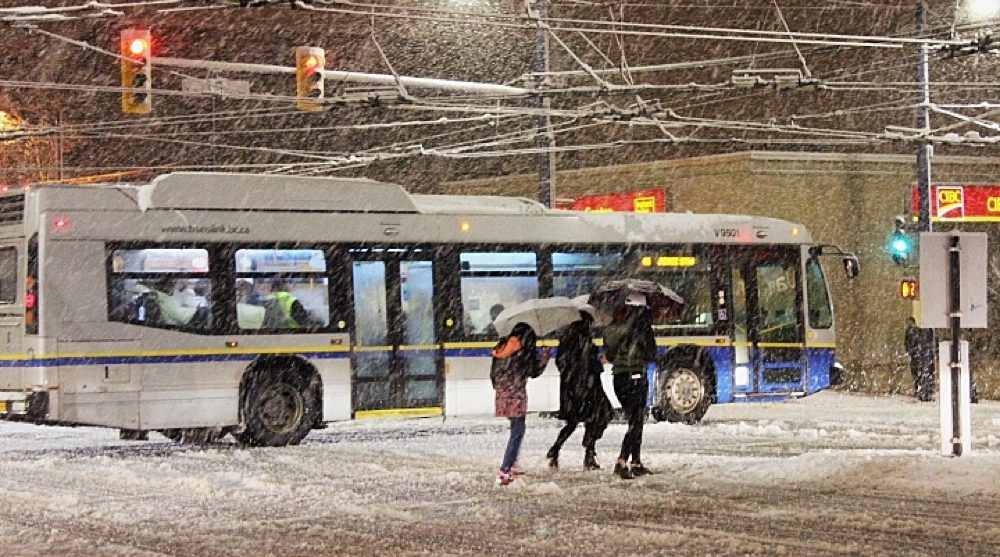
Longest cold snap in decades is an outlier, not a trend
By Greg Waldock, Staff Writer
December 2016 saw some of the heaviest snowfall in Vancouver in recent years, and the effects were brutal. Bridges closed, transit was blocked, hills were impassible, and sidewalks were completely iced over. Classes were cancelled, exams were postponed, and buses slid down the hills of New Westminster.
The city’s inability to spread salt on roads across Metro Vancouver led some to drastic measures, from plundering sand from beaches to raiding city-owned salt in storage. All this ice has been caused by an unusually high amount of snowfall and preserved by one of Vancouver’s longest cold snaps in decades.
After a month of a cold that kept the snow around for weeks, the CBC compared findings from current and old Environment Canada data to see how the winter of 2016–17 fits in with Vancouver’s normally mild weather. They found that December the longest cold snap since 1990–91, as the whole month since December 5 was cold weather with little variation.
“We’ve also defined a ‘cold day’ as when the average temperature is under five degrees Celsius,” said the CBC.
The cold snap, in both 1990 and 2016, allowed for the precipitation from one or two snowfalls to linger the whole month.
Despite this, the CBC’s research found that 2016 was just an outlier, and that global warming has had a severe impact on the climate of the Lower Mainland.
According to Environment Canada’s data, “prior to the 1990s, cold snaps that lasted longer than a month were relatively common, occurring once or twice a decade.”
The hard, icy winters of old are increasingly rare, meaning that last December and the next few months may be the coldest winter for the next several decades. The damage that climate change has done to the ecosystem of British Columbia extends beyond poor skiing seasons: This may be the first time in years that the pine beetles invading the forests of the interior are being culled by the weather.
Such a change from the new norm explains Vancouver’s lack of preparedness for the ice and snow. Despite the bitter cold of late 2016 and early 2017, the increasingly mild climate of the Lower Mainland shows no sign of an overall cooling. If current trends continue in the coming decade, the Lower Mainland may remain just as unprepared when the next unending cold snap hits the next time around.


